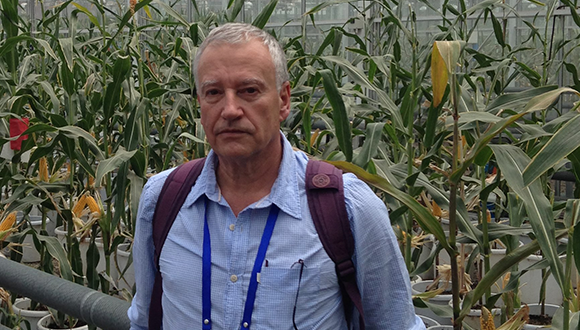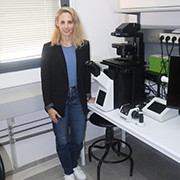Tribute to Professor Hillel Fromm
Professor Hillel Fromm (1954-2020)
With great sadness, we report that Professor Hillel Fromm passed away on October 12, following a long battle with cancer at the age of 66. Hillel was a major force in the field of plant signal transduction where he made important contributions to understanding the roles of Ca2+ during plant responses to abiotic stimuli.
Hillel led a research program aimed at understanding Ca2+ as the main secondary messenger used by plants during information processing. In particular, research from Hillel’s lab identifying novel proteins regulated by the main Ca2+-sensor, calmodulin, was critical in helping to bridge the realms of calcium signals to downstream physiological responses. More recently, Hillel investigated the links between Ca2+ and hydrotropism (growth towards water) in roots, a fascinating but poorly understood phenomenon, and reported a key role for the MIZ1 protein in Ca2+-mediated hydrotropism. Hillel was still actively researching hydrotropism up until the point at which he took ill.
Regardless of whether he was exploring roles for calcium in metabolism, transport, gene expression, or hydrotropism, a hallmark of Hillel’s research was that he brought the collective tools of molecular genetics, biochemistry, physiology, genomics and phenomics to bear, and wielded them with equal and impressive expertise.
Hillel was twice the Chair of the Department of Molecular Biology and Ecology of Plants and led the transition of the department into The School of Plant Sciences and Food Security. As the Head of the School, Hillel promoted an interdisciplinary program in plant sciences gathering plant molecular biologists, physiologists, ecologists, chemists, bioinformaticians, mathematicians and physicists.
Hillel initiated and directed the Israeli Center of Research Excellence (I-CORE): Plant Adaptation to Changing Environment, which brought under one umbrella researchers from Tel Aviv University, The Hebrew University and the Weizmann Institute. The establishment of the center has enabled the recruitment top-notch young scientists and purchase of sophisticated equipment and resulted in highly impactful publications by the different member groups.
Hillel trained many students and post-doctoral researchers who went on to have independent careers. He was a beloved and admired mentor. Hillel’s former students fondly recall his supportive attitude that continued long after they left the lab. To his colleagues, Hillel will be remembered for his modesty, vision and leadership.
Despite his health challenges, Hillel never gave up. He worked diligently as late as possible for the benefit of his colleagues and beloved family. Hillel is survived by his wife Orit, their daughter Yuval, his children Yonatan and Yael, his mother Betty and brothers Ziggy and Gideon. His passing is a tragic loss for the School, the Faculty of Life Sciences, the entire Israel plant-science community, and his many colleagues in the field calcium signaling.





